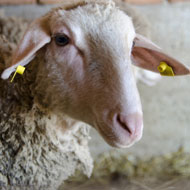Farmers advised to test for liver fluke before treating

“Reports from around the UK suggest that, as predicted, there has been a low challenge from liver fluke this winter."
Farmers are being advised to test sheep and cattle for liver fluke to determine if treatment is needed, as the number of fluke incidents has been much lower than in previous years.
A very dry summer in 2018, followed by winter conditions that kept fluke levels low, has resulted in very few reports of losses from acute fluke disease and lower than normal incidents of disease due to chronic fluke infections.
Lesley Stubbings, of the Sustainable Control of Parasites in Sheep (SCOPS) group, said: “Reports from around the UK suggest that, as predicted, there has been a low challenge from liver fluke this winter.
“However, experts from around the country agree the key action this spring is to test to see if there are adult fluke present. If they are, treatment is needed to minimise the number of liver fluke eggs deposited on pastures this spring and reduce infection levels later in the summer.”
Diana Williams, from the University of Liverpool, said that while the liver fluke challenge was lower than normal last autumn, it is not safe to assume that treatment will be unnecessary this spring.
“Pockets of fluke still exist even in a drought, because stock will tend to graze fresh grass around wetter parts of fields, water courses and ditches,” she added. “These areas are where snails and, therefore, liver fluke larvae are also likely to be concentrated and why it is important to consider testing stock now, before turnout.”



 The Animal and Plant Health Agency (APHA) has updated its online reporting service for dead wild birds.
The Animal and Plant Health Agency (APHA) has updated its online reporting service for dead wild birds.